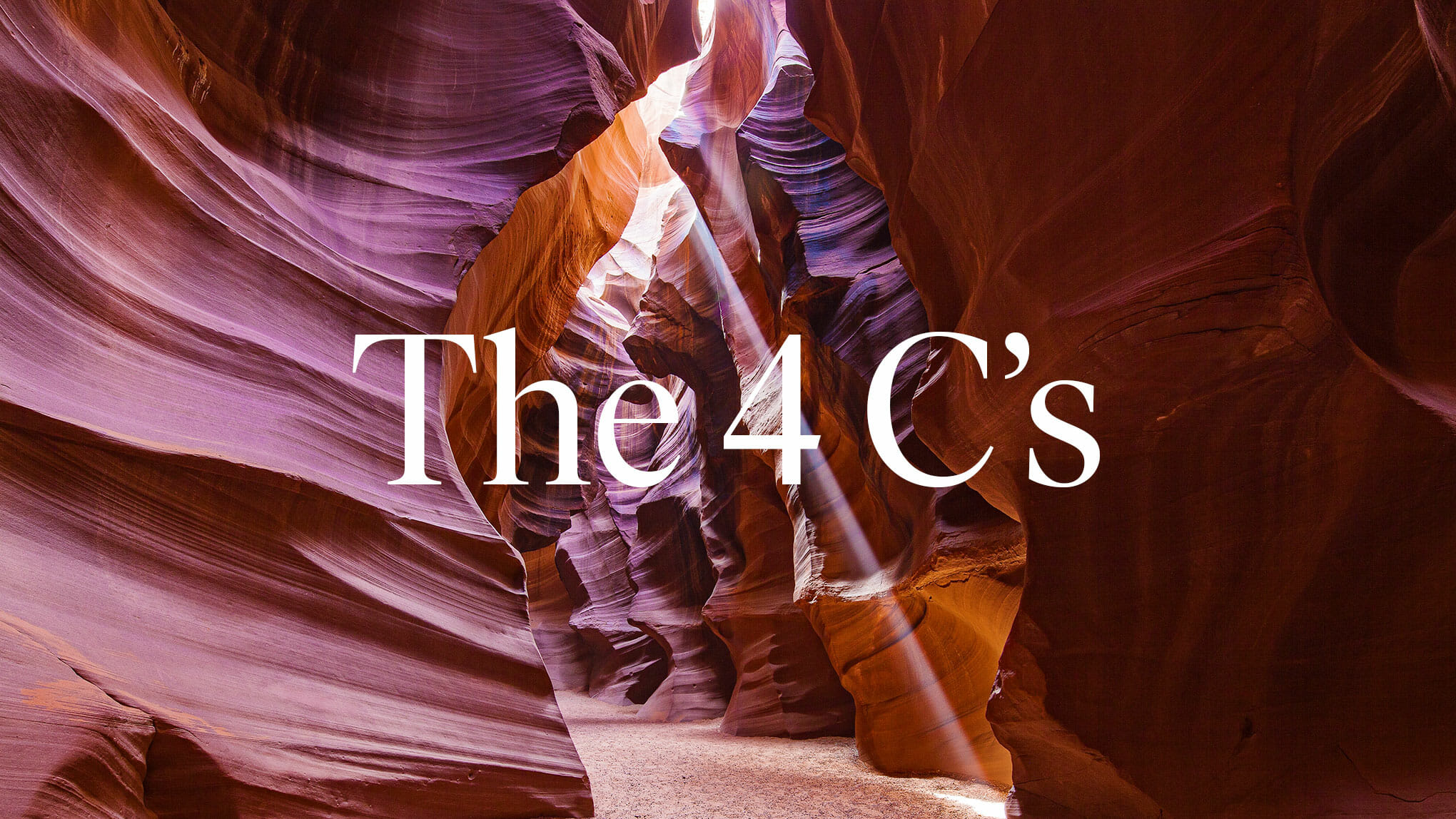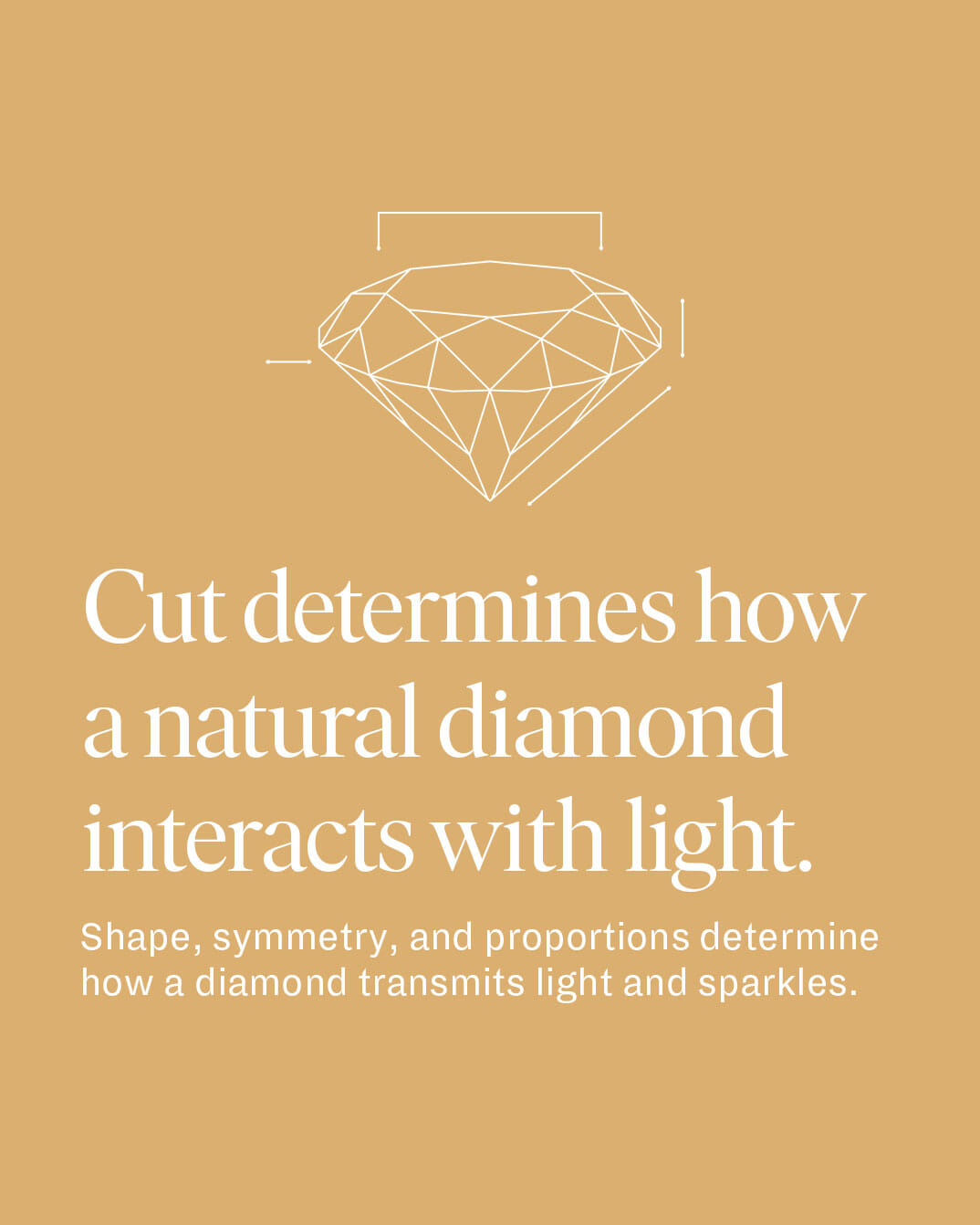Diamond Cut
The cut of a natural diamond determines how it interacts with light. The Cut Grading System assesses diamond appearance, including its brightness, fire, and scintillation, which make up the way a diamond reflects light, dispersing it into color, and sparkles.
To maximize its beauty, natural diamond cutting requires a mix of artistry and precision. Which is why diamond cut grade also judges a diamond based on the craftsmanship that went into it, meaning the diamond proportions, polish, and final symmetry.




